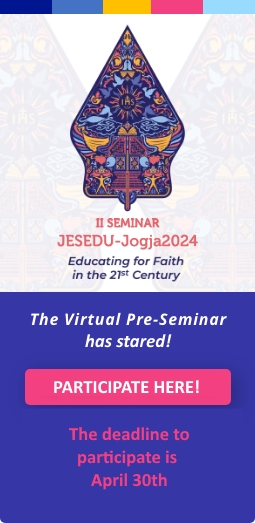To leave no one behind is to globalize empathy, it is to propose, build, transform all together, it is to report, defend, change and it is all of this by placing people and the care of the common house in the center.”
If this Covid-19 is teaching us anything, it’s that we’re connected.Things affect the world as a whole. The problems are global and so must the solutions be. It is true that the effects will not be the same for everyone, but what we certainly know is that everyone will be affected. Then, if everything is connected, can people stay disconnected? Can we only deal with individual or national issues? Are the economic, production, extraction and exploitation networks the only possible ones? Can people be connected in a different way? Can empathy, solidarity be globalized? And if it is, how can we do it? Is this the right moment?
Perhaps some of these questions find their answers in processes that have already begun and that we in the development organizations have been defending for a long time: education for global citizenship. The little daughter of cooperation has grown up and is looking for her place in a global village that will not be capable of surviving without it. Without resorting to this education that facilitates experiences to strengthen an informed, critical, committed and active citizenship, which in moments like today acts as a single body without closing its eyes to what is happening in any of its parts.
A citizenship able to interconnect with other people and groups around the world, which impacts on the local to transform the global. Promoting fair and equitable relations between people and with the planet in both spheres, in order to guarantee the survival of them.
An education that provides tools, skills and specific resources to act on the reality, connecting the contents and educational experiences with that which happens around us and on which everyone has the responsibility to act.
This education, although sometimes invisibilized, has not gone unnoticed in the Global Development Agenda, which in its goal 4.7 includes it as one of the keys to reach the rest of the SDGs.
From this approach, education for global citizenship resignifies the slogan “Leave no one behind”, in which not only is it considered to re-establish situations of social and environmental injustice, but also to do it by giving people, all of them, the leading role. To leave no one behind is to globalize empathy, it is to propose, build, transform all together, it is to report, defend, change and it is all of this by placing people and the care of the common house in the center.
Maybe we should move away from short-term solutions when we face global challenges that require coordinated and supportive responses. These answers will be possible if education teaches citizens to look at our world, if it offers tools to take an active role. A commitment to transformative education can be the best antidote to the short-sightedness, lack of solidarity and selfishness that sometimes define our global governance.
If this Covid-19 has taught us anything, it is that the neighbourhood next to ours may be as far away as any country in the world, but, as long as we do not look for it and with it in deciding our actions, we cannot change anything, with all the pain that this will bring. Perhaps when it is all over we will be ready to educate our gaze, to reassign what is near and what is far, to see the interconnection of problems and solutions. Able to create a global citizenship, which can survive beyond the Covid-19.
Article written by, Jessica García Fernández, Responsable de Educación no formal y Movilización en Entreculturas
